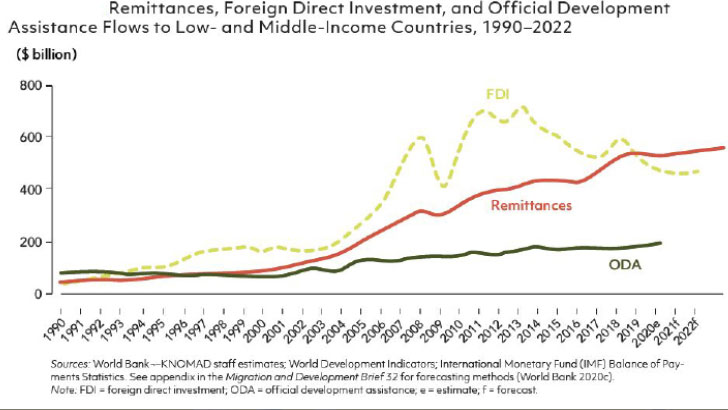Remittances drop Hits households
A new report shows that 80 percent of households in Malawi experienced a decline in remittances, a situation experts fear could affect the critical lifeline for the poor and vulnerable.
Published figures for May 2021 Migration and Development Brief 34 of the World Bank titled Resilience Covid-19 Crisis Through A Migration Lens show that 80.6 percent of households in the rural areas and 81.6 percent of households in the urban area in sub-Saharan Africa experienced a decrease in remittances in 2020.
Reads the report in part: “Sub-Saharan Africa remains the most expensive region to send money to where sending $200 [K158 000] costs an average of 8.2 percent in the fourth quarter of 2020.
“Within the region which experiences high intra-regional migration, it is expensive to send money from South Africa to Botswana [19.6 percent], to Zimbabwe [14 percent] and to Malawi [16 percent].” This is more than the United Nations Sustainable Development Goal target of three percent.

Compared to countries in the region, the remittance decline for households was also experienced in Nigeria (72 percent), Mali (80.1 percent), Zimbabwe (67.7 percent), Ethiopia (54.6) and Somalia (94. 6 percent).
Effectively, the report shows that remittances to sub-Saharan Africa declined by an estimated 12.5 percent in 2020 to $42 billion (about K33 trillion).
In an interview yesterday, Malawi University of Business Administration and Science associate professor of economics Betchani Tchereni said the decline in remittances is a missed opportunity for the country’s economy.
He said: “Remittances change the landscape of our country and contributes to some transformation. For example, many families are able to send kids to school because of remittances, others are able to build decent houses in rural areas.
“At the national level, remittances assist us to improve the strength of our currency. When people send small remittances, our kwacha gains some strength which is good for the country.”
In a statement accompanying the report, World Bank social protection and jobs global practice global director Michal Rutkowski observed that as Covid-19 devastates families around the world, remittances continue to provide a critical lifeline for the poor and vulnerable.
“Supportive policy responses, together with national social protection systems should continue to be inclusive of all communities, including migrants,” he said.
During the year under review, Reserve Bank of Malawi (RBM) figures show that the country received $214.5 million (about K169 billion) in personal remittances in 2020 down from $265.7 million (about K208 billion) in 2019.
RBM spokesperson Onelie Nkuna earlier attributed the drop in remittance to the economic crisis brought about by the Covid-19 pandemic which triggered a fall in the wages and employment of migrant workers.





